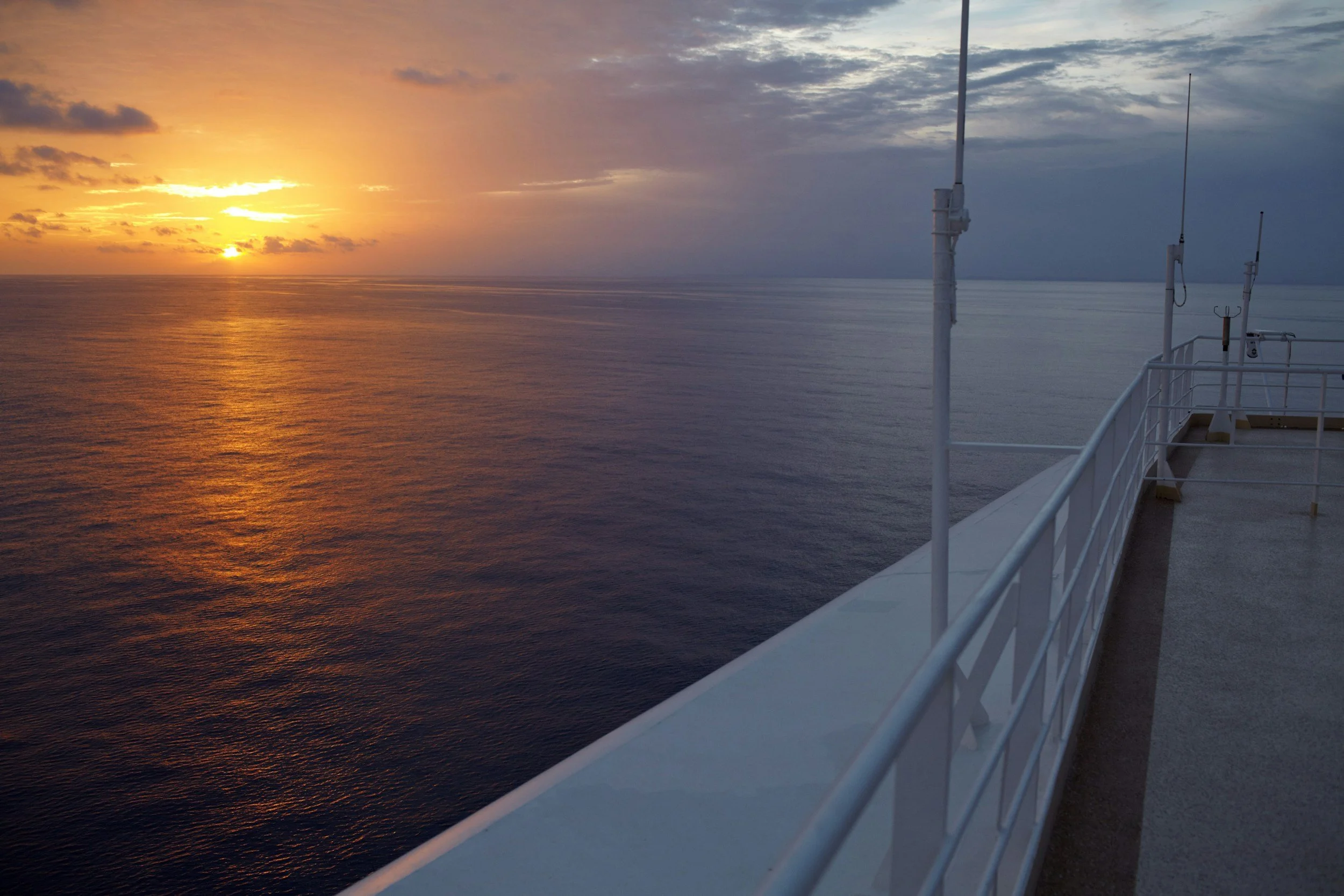What to Restock Before Signing on for a New Contract at Sea
As I’ve already shared my full packing list for cruise ship crew in a previous post (and plenty of stories about life on board), there’s one practical topic I haven’t covered yet.
For one: what are the things I always restock before signing on for another contract? Secondly, how do I decide which things are worth replacing versus buying along the way?
Here you have it: the restocking routine of someone who likes to keep things simple, but also hates the idea of running out of shampoo in the first week on board.
How I Decide What’s Worth Restocking
If something can last an entire contract, I pack it. Full-size toiletries, for example, usually see me through five months or more. For items that don’t last as long, like snacks or coffee, I still bring enough to cover the basics for the first few weeks. It’s easier to start prepared than to scramble for supplies while I’m still settling in.
I don’t replace everything between contracts. Durable things, like my tumbler or sling bag, can handle years at sea. Restocking is just about topping up what I know will run out or wear down during the trip.
The Items Crew Should Restock Before Heading Back to Sea
Here’s what usually makes it onto my restock list…
Toiletries & personal care
I’m small-sized, which probably helps me stretch bottles longer than the average person. I don’t overlather or use much product. Sometimes a single bottle of shampoo or soap lasts my entire contract (five months) or even longer, and I end up bringing home the leftovers. I’ve switched from body wash to soap bars; a few good bars can last an entire contract with less bulk and no risk of spills.
Here’s what I pack:
Shampoo and conditioner – One full-size bottle each.
Soap bars – Compact and long-lasting, perfect for limited storage.
Toothpaste – A single tube is enough for me.
Facial cleanser and toner – My basic skincare routine.
Hand sanitiser & wipes
I don’t always use them since I prefer washing my hands when I can. But I still pack a couple of small bottles of hand sanitiser and a pack of wipes. They’re especially useful during shore leave in unfamiliar places, when it’s hot, there’s no sink nearby, or I just want to wipe off the day’s grime before heading back onboard.
I used to bring perfume, hair oil, lotion, and deodorant – sometimes buying them during a contract. Now, I only pack them if I already have them at home. They’re not essentials for me, and most of the time I forget to use them anyway. (Plus, I tend to sweat with deodorant, oddly enough).
Medicines & first aid
To be honest, I’m not the best at preparing for medical emergencies. I hardly bring anything with me – just a tiny jar of Tiger Balm that I treat as my cure-all. I also throw in vitamins a couple of times, usually extras from home.
The truth is, there’s a first aid kit and a clinic onboard, so I don’t feel the need to bring much. But I know some crew prefer being more prepared, and it’s not a bad idea to pack basics like:
Painkillers (paracetamol or ibuprofen)
Plasters or band-aids
Any prescription meds, plus extras
I keep this list for anyone more cautious than me.
Laundry nets & mesh bag
Those industrial ship washing machines are brutal. I’ve seen what happens to clothes when they go in unprotected – zips snag, socks vanish, and delicate fabrics don’t stand a chance. Mesh laundry bags are the simplest way to save your clothes from the chaos.
I bring a few different sizes:
Small nets for socks, undergarments, and smaller items that easily get lost.
Medium nets for T-shirts.
Larger ones for thicker clothes like sweaters.
Laundry detergent
I bring a small bottle of gentle laundry detergent for handwashing my delicates, like underwear or anything I don’t trust in the ship’s machines. On my ships, we’re not encouraged to add our own detergent to the industrial laundry, so I keep this just for quick hand washes in the cabin.
Socks & undergarments
Socks are one of those things I end up restocking the most. Between long walks during shore leave and wearing them with heels or casual shoes, they wear out faster than I expect, especially after going through ship laundry. I handwash them sometimes, but more often they get sent in the laundry nets and come back looking a little rough.
Underwear, on the other hand, lasts me longer because I always handwash it. I usually only need to replace them after two or three contracts. I used to bring singlets, but they wore out so quickly in the ship’s laundry that I stopped packing them altogether. Now, I keep it simple and only bring what I know I’ll use and what will last the entire contract.
Hair ties
It sounds like such a small thing, but a good stash of hair ties can save you from daily frustration. I stick to simple black hair ties – they’re practical, and go with everything.
Hair ties don’t usually make it onto my official restock list, but I keep them in the back of my mind. I rarely stock up during vacation; instead, I wait to grab them during shore leave in ports like Taiwan or Hong Kong, where they’re cheaper and easier to find.
If I’m already shopping online before signing on, I’d add a pack to my cart just to have a few durable ones that last.
Surface wipes
I don’t pack heavy-duty cleaning products because the ship provides most of that, and I have housekeeping privileges. Still, I like having a pack of multi-purpose or disinfectant wipes in my cabin. They’re handy for quick touch-ups – wiping down the desk, cleaning the phone, or tackling crumbs on a busy day.
If the cabin has carpeted floors, I’ll sometimes just use damp tissue for small messes, but wipes are more reliable and last longer. It’s one of those small things that makes the cabin feel fresher without needing to ask for supplies.
Essential oils
A little scent can make a cabin feel instantly more welcoming. I’ve seen crew bring reed diffusers, oil diffusers, or just a few bottles of essential oils – and it transforms that “metal box” vibe into something softer and homier. I’ve even found myself wandering through stores mid-contract, debating whether to buy one.
Reed diffusers are effortless and low-maintenance but fade faster, while electric diffusers need a power source yet deliver a stronger, adjustable scent. If you already use one, it’s worth packing essential oil refills or extra reed sticks to last the whole contract. Even a single small bottle of oil can add a comforting touch when the cabin air feels stale.
Just skip candles.
Comfort food and drinks
I bring one or two packets of instant coffee with me, but they never last through a full 150-day contract. I try to make them last as long as possible, mostly because I don’t want to rely on too much caffeine or spend extra money on things. The ship’s coffee, tea, and Milo are free, but sometimes it’s nice to have my own stash for the office or late-night shifts.
Snacks are the same story. I don’t pack much, maybe a packet of Popo fish murukku or some biscuits, just enough to give me a taste of home.
Most crew restock snacks, instant noodles, or treats during shore leave, but I like having something ready for those first days when I’m still settling in.
For more tips on life at sea, you might also like…














